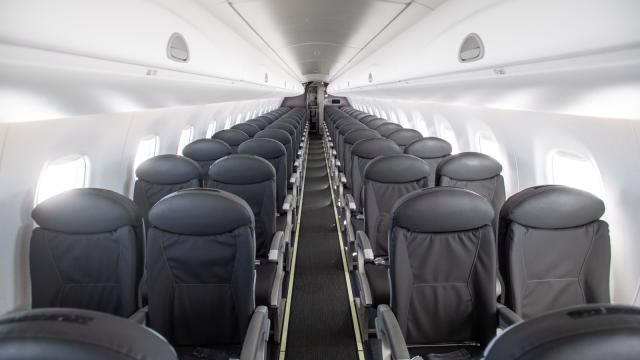Europe employs a “use it or lose it” system to determine an airline’s flight slots, so what are operators to do when a global outbreak tanks flight demands? The answer: “ghost” flights.
It’s exactly what it sounds like: Airlines are currently flying planes devoid of passengers throughout Europe and wasting thousands of gallons of fuel in the process, the Sunday Times reported this week. While it varies depending on the model, some planes can burn five gallons of jet fuel per mile of flight, emitting tons of CO2 and other greenhouse gases all the while.
[referenced url=” thumb=” title=” excerpt=”]
The reason operators have been forced to deploy “ghost” planes can be traced to a decades-old regulation “to ensure that airlines have access to the busiest EU airports on the basis of principles of neutrality, transparency and non-discrimination,” per the European Commission’s site. In Europe, if airlines fail to use 80 per cent of their allocated flight slots at a particular airport, they risk losing those slots to competitors at their yearly assessments by government officials. Essentially, operators have to prove they have the customer demand to justify such prime real estate.
This quota has sent operators scrambling due to flatlining flight demand amid the COVID-19 outbreak, the disease caused by the novel coronavirus. To date, there have been more than 100,000 reported cases in 101 countries worldwide.
This week, UK Transport Secretary Grant Shapps wrote to regulators asking for a moratorium on these rules to avoid further environmental and economic repercussions as the outbreak continues to spread. The cost of flying empty planes adds to the aviation industry’s estimated $US113 ($170) billion in lost sales as people avoid travelling for fear of contracting the illness, according to the International Air Transport Association.
These “ghost” flights mark yet another cascading environmental effect stemming from COVID-19’s rapid spread around the globe. Global oil demand has also collapsed and experienced its most dramatic drop in history earlier this week. And, for better or worse, air pollution above China has similarly plummeted in the wake of several government quarantines that put millions of citizens on lockdown in an attempt to contain the disease’s spread.
